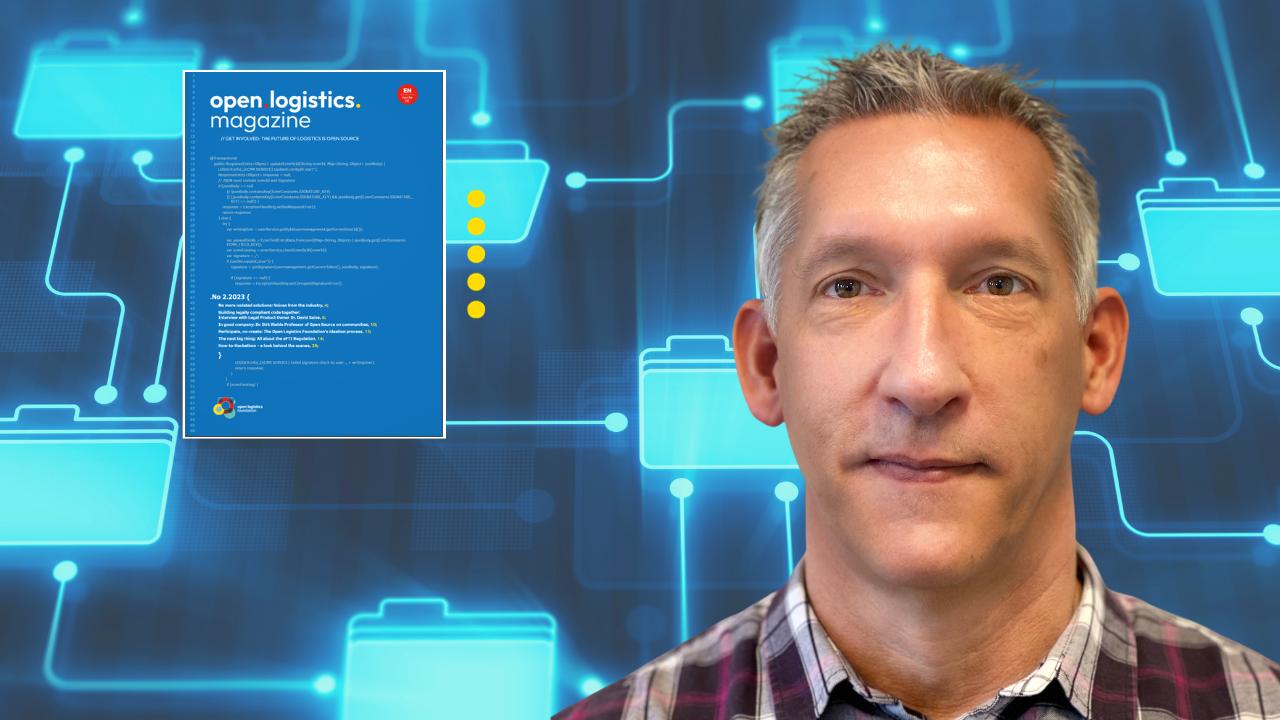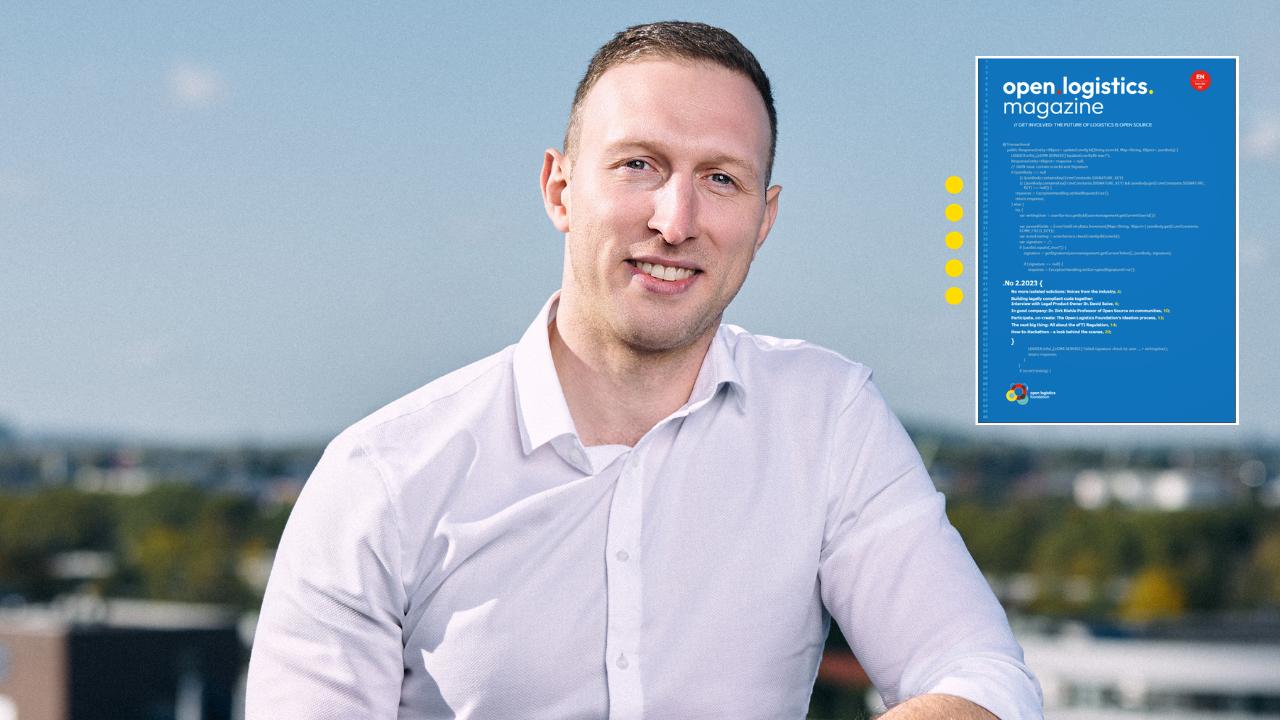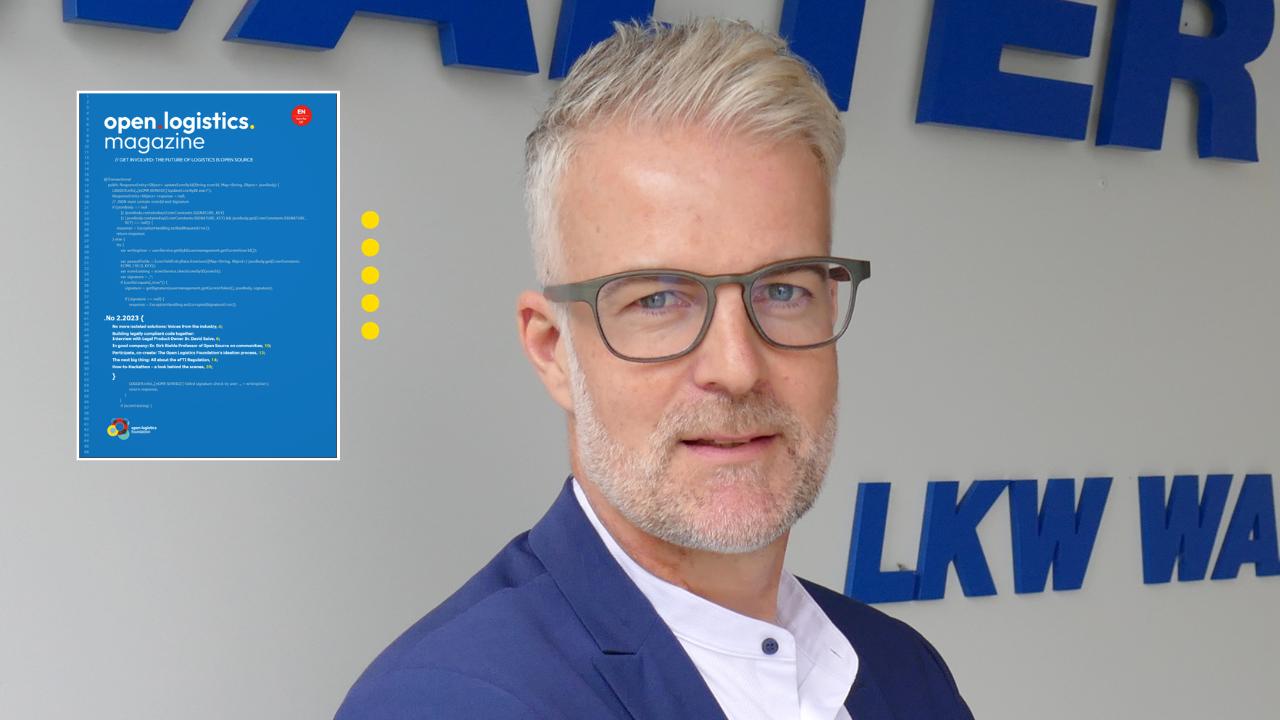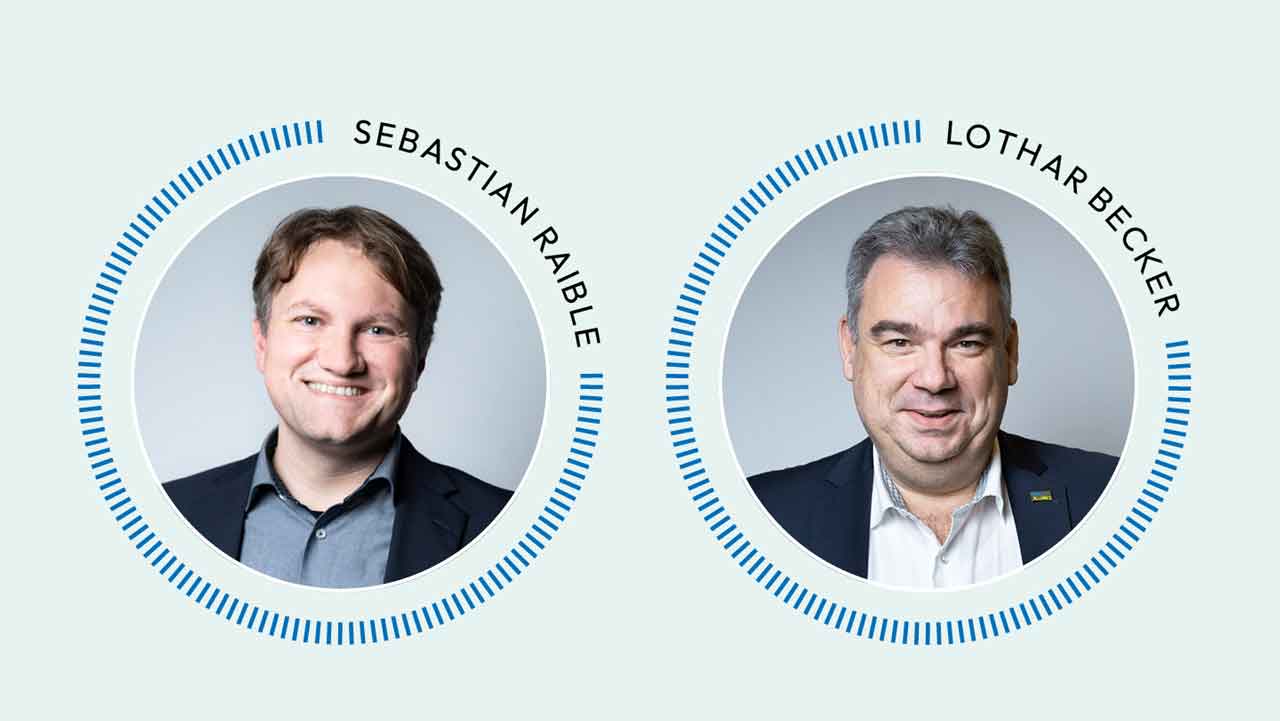Accelerating innovation
In a time where the global economy is characterised by increasingly complex supply chains and logistical challenges, digital advancements are shifting more and more into focus in the industry. As digitalisation continues, there is a growing need to standardise processes and share large amounts of data between companies in real time. It is therefore necessary to define a common language and uniform standards to ensure interoperability. One of the biggest challenges here is to agree on a „common denominator“. This is precisely where the basic idea of the Open Logistics Foundation comes in.
As proponents of the open source approach, we firmly believe that the free exchange of knowledge and innovation between companies helps to minimise bottlenecks, optimise processes, and ultimately make the entire supply chain more efficient. The logistics industry faces several challenges that we can only solve together. Logical and as simple as possible end-2-end communication between all parties involved requires cooperation beyond one’s own company and system boundaries in all essential process steps.
We believe that the future of the transport industry lies in a closely connected, collaborative environment. The open source idea enables us to use synergies and accelerate innovations. Together we can lay the foundation for a futureproof, networked and efficient logistics industry.
Michael Gschwandtner, Director Digital Business, LKW WALTER
LKW Walter is the leading transport organisation for full loads in Europe and has been pioneering the development of combined rail/road transport and short-sea shipping since 1984.

Easy communication with other systems
Open source software can undoubtedly add value. Where and how to deploy it is an important choice. In my opinion, distinctiveness offers considerable added value and not everything should look the same. So “how” and “when” is an interesting challenge. It seems to me that the biggest gains can be realised in the area of digitalisation of (freight) documents and data exchange between systems. Traceability of shipments (“Track & Trace”) for instance, is an important topic. I think that maximum support for this traceability using open source components will create a lot of added value.
Within our standard software Logistics.ONE, we have already been using open source components for a long time. A spearhead of our product strategy is to enable easy communication with other systems. In the Netherlands, an open source data model called “OTM” (Open Trip Model) has been developed to realise standardisation of that communication. We think it would be great if OTM becomes widely accepted, it should greatly simplify the exchange of data between different systems. That open source is supported and used by enough market players is of course very important. Within the Open Logistics Foundation, this applies to companies active in transport and logistics, but no less so to IT suppliers such as Aventeon. It goes without saying that open source software must also remain in development. Automation never stands still.
Frank Kindt, CEO, Aventeon
The Dutch IT software provider Aventeon supports logistics companies in the digitalisation of processes on the last mile with the help of its Logistics.ONE software.

Solutions for the “broad” masses
The enormous importance of open source software solutions cannot be emphasised often enough. Such a highly fragmented industry, with an extremely large number of small and medium-sized enterprises, which often simply lack the time and, in some cases, the know-how to dedicate themselves to the topic of digitalisation, needs standardised, cost-effective, and high-performance solutions. It is crucial that no isolated solutions are created for individuals. The focus of open source is on cooperation with other companies in a community that is as large as possible. This is the only way to ensure that solutions are created for the entire market and not for individual players. After all, in the end it is about creating sensible solutions for logistics and making them available to as broad a “mass” as possible. At the same time, further development must also consider the interests of as many people as possible so that the solutions developed are also used in the long term.
Alexander Garbar, Head of Corporate Development and Strategy, duisport – Duisburger Hafen AG
The Port of Duisburg is the largest hinterland hub in Europe and, as a trimodal logistics hub, achieves a handling volume of 4.0 million TEU (20-foot standard containers).
This article was published in the second issue of the Open Logistics Magazine. You can read the entire magazine and register for future editions here.





